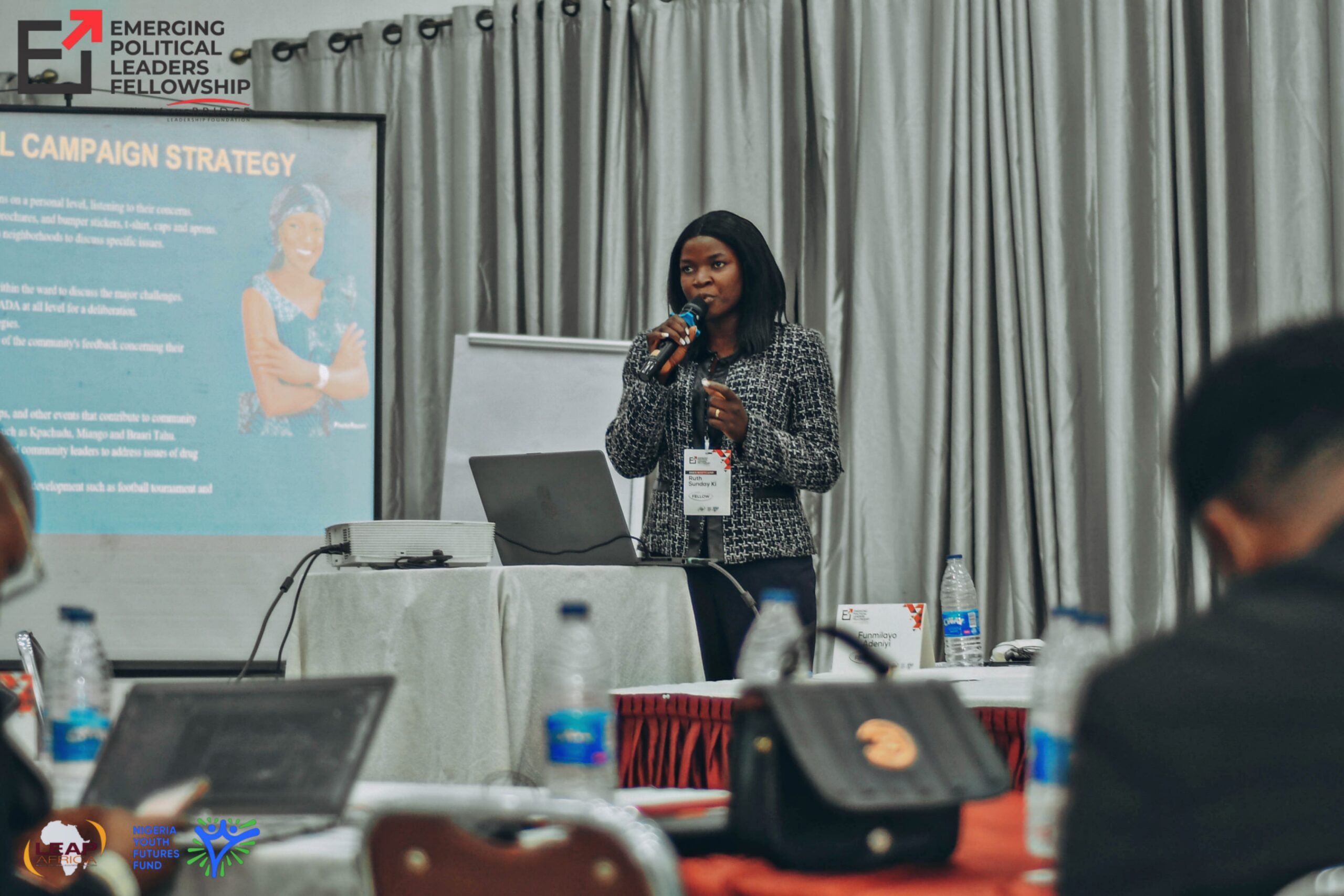While the world reeled from the chaos brought on by the Covid-19 pandemic in 2020, Ruth Ki’s little world in Nigeria was tumbling from a nefarious breach on her Google email. “I became a victim of cyber attacks when someone hacked my Google account, which was linked to all my social media,” she said.
A global report from Surfshark, an Amsterdam-based cybersecurity firm, ranked Nigeria as the 32nd most breached country in the first quarter of 2023. At least 82,000 Nigerian accounts, reflecting a 64% uptick from the previous quarter, were leaked between January and March 2023, according to the survey.
The awful breach on her email and social-media accounts piqued Ki’s curiosity in cybersecurity. Driven by a newfound passion to safeguard herself as well as others from the sinister attacks in the cyberspace, Ki launched into a study of cybersecurity.
“Being a victim of cyber attacks prompted a deep curiosity. I wanted to understand why someone had targeted me and delved into learning how cyberspace operates. I graduated with a degree in Criminology and Security Studies, sparking my interest in cybersecurity through studying cybercrimes.
“This journey was not only to protect myself but also to assist other organizations and individuals in safeguarding their digital assets. Since 2020, I’ve been actively learning and implementing solutions in the field,” Ki said.
Victim turned Hero
With a First class degree in criminology and security studies from the University of Jos, Nigeria, Ki is exploring the world of cyber intelligence as an analyst.
“The world has gone digital. More than 60 percent of the entire population is connected to the internet. While some are using the internet to make lives better, others are using it to perpetuate cyber crimes. Cybersecurity exists because of cybercrimes.
“The future is cyber. Because I don’t think there is any business, agency and even government agency that doesn’t have an online presence. And as long as you are connected online, you are vulnerable to cyberattacks. So you need the help of cybersecurity analysts and experts,” Ki maintained.
Yet learning the ropes in cybersecurity hasn’t been smooth sailing for Ki, who hails from northern Nigeria. Given that the concept of cybersecurity was still nascent in this region, many of its corporate organisations were unacquainted with the dark intricacies of cybersecurity.
“And when you talk about cybersecurity, many organizations here don’t even understand what you are talking about. Despite the fact that they are engaging with the internet, many know nothing about cyber security.”
This dearth of knowledge means that fewer cybersecurity companies can be found in the region, with the majority of companies concentrated in urban cities like Lagos, Abuja and Port Harcourt. As a result, Ruth struggled with finding an internship placement within her environment.
Aiming for hands-on experience, she turned to virtual internships, cashing in on volunteering opportunities. But remote learning also proved challenging for her.
“Learning here has been difficult, as I need a company that has the structure I need to intern but I couldn’t find one. I would learn but nowhere to implement the solutions. The cybersecurity companies are only in Lagos and Abuja,” she bemoaned.
Notwithstanding, Ki has found immense delight in helping individuals and organizations reduce their vulnerabilities to cyber threats. She envisages establishing her own cybersecurity company in the North, where she can help northerners like herself stay safe from Internet hacks.
Despite being a woman in a male-dominated field, Ki is of the belief that competence and skills, not gender, should define one’s capabilities. Her resilience and proficiency have spurred her to work part-time with a Lagos-based company, demonstrating that talent knows no gender boundaries.
“Cybersecurity is more rewarding when you have a company with the structure. I work part-time with a company in Lagos and it will be different if I am living in Lagos.”
Beyond her cybersecurity pursuits, Ki has founded the African Jewels Development Initiative. With this non-profit organisation, she aims to enhance the lives of young people in Africa through access to quality digital education.
During the Covid-19 pandemic in 2020, Ruth Ki from Nigeria experienced a cyber attack that compromised her Google and social media accounts. This prompted her interest in cybersecurity, leading her to study Criminology and Security Studies at the University of Jos.
By 2023, Nigeria ranked the 32nd most breached country, with 82,000 accounts leaked in Q1. Ki’s journey into cybersecurity was driven by her personal breach experience, and she is now dedicated to helping individuals and organizations protect their digital assets.
Despite challenges, including the lack of cybersecurity awareness and companies in northern Nigeria, Ki pursued virtual internships and volunteering. She now works part-time with a Lagos-based company and aims to establish her own cybersecurity firm in northern Nigeria.
Ki also founded the African Jewels Development Initiative to support young Africans with quality digital education. Her story underscores the importance of cybersecurity in an increasingly digital world and highlights the role of competence over gender in the field.






